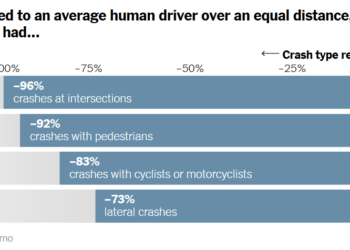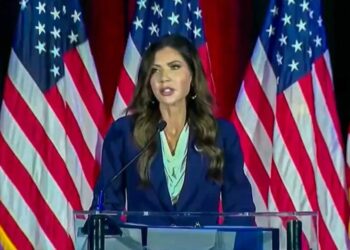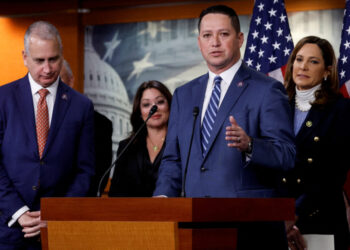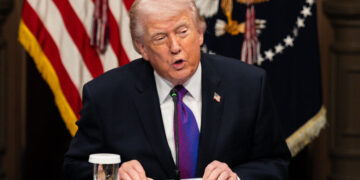What’s Going On in This Graph? | March 11, 2026
Twenty years ago, self-driving cars were only found in futuristic science fiction movies. But today, you may see them on...
‘Mad as a murder hornet’: Republican spills on fuming Trump before Noem firing
WASHINGTON — Sen. John Kennedy had one thing to say about Kristi Noem getting the axe: he wasn’t getting “between...
Feeling the Effects of 260,000 Federal Jobs Lost
Good afternoon. As the war in Iran entered its sixth day, concerns about the global flow of energy supplies continued...
‘Million Dollar Listing’ broker sues Oren Alexander as verdict looms in his criminal case
Tracy Tutor. : Nicole Weingart/Bravo/NBCU Photo Bank via Getty ImagesReal estate broker Tracy Tutor has filed a lawsuit against Oren...
America is Weary of School Shootings. Can Prosecuting Parents Help?
Audrey Lanni, a paramedic in Winder, Ga., was dispatched to Apalachee High School soon after a 14-year-old gunman opened fire...
Fox News taken aback by ‘rattled’ Kristi Noem’s remarks after ouster: ‘That was weird’
Fox News host John Roberts described Homeland Security Secretary Kristi Noem as “rattled” moments after President Donald Trump fired her....
Slurs Filled Chat Created by a Republican Party Official in Florida
A leaked group chat with numerous racist, antisemitic and misogynistic text messages among young conservatives engulfed the Miami-Dade County Republican...
First BioShock 4 Gameplay Details Leak
According to the latest leak, BioShock 4 will be a very ambitious immersive sim with a major focus on player...
‘CBS Mornings’ Exec Bails as Boss Seeks MAGA Host
A top CBS Mornings producer is leaving the program—a development that comes as CBS News boss Bari Weiss is reportedly...
Our Student Podcast Contest
Do you listen to podcasts? Do you tune in to find out what’s happening in the world? To stay up-to-date...














